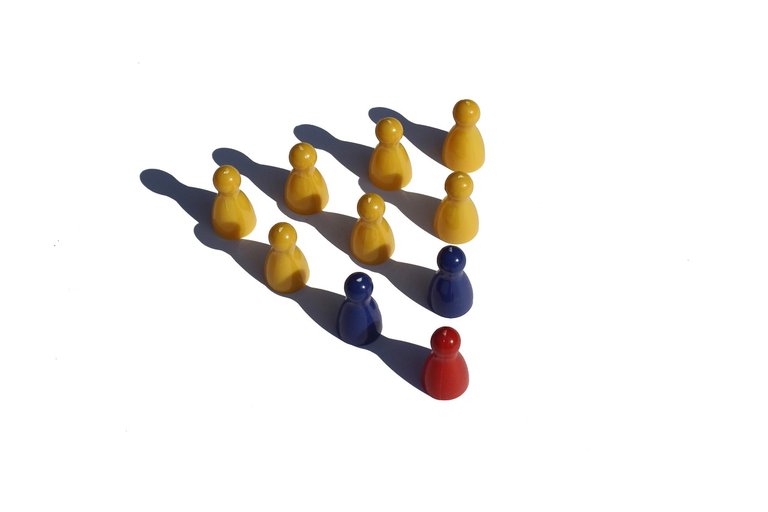I was watching a clip of a very obese woman being pushed by her handlers to run a long course to lose weight. I was struck at how hard and fast they were pushing her, and was concerned about the effect it might have on her long-term health.
It reminded me of my own journey to fitness back when I was working in telephony sitting in an office chair, while gulping down several cans of Mountain Dew every day just to stay alert and awake.
That year I decided to make a change for the better, but I would not be huffing and puffing, red-faced, like that poor woman trying to make it to the end of the course quickly.
In my case, I was going to start SMALL.

Let's Get Small
By taking baby steps and stopping when I felt tired, I met and then vastly exceeded my goals. One step at a time, resting often, and s-l-o-w-l-y ramping things up over time.
You see, I view problems almost as a piece of abstract art, with each piece contributing together to form a harmonious whole.
I've found that this works the same way with almost anything you can set a goal for. When I entered the world of stocks for the first time, I started with one share of a mutual fund, and then slowly added to it each week from my pay, while watching the marginal shares build quarter by quarter.
In my algebra course, I focused on breaking down the equations into sections, and solving that particular problem instead of being intimidated by worrying about all of them during the test. I worked on the "easy" ones first, instead of falling for the instructors trick of front-loading the hardest ones at the beginning in order to trip up the students.
If there are ten problems and three of them are super-hard and time-consuming, since they all offer an equal percentage of your score, it only makes since to tackle the 7 you are sure of, before gambling on the rest. This way, you lock in a 70% score, which is a passing grade.
Right?
Lock in those gains first.
Work smarter, not harder.
What works for me when approaching any big project, is to break it down into manageable portions thus giving myself a little victory as I complete each one.
On Hive for example, you can look at each post that you publish as adding to a deep back catalog over time. Complete one, publish it, celebrate, then plot out the next one.
Like that piece of art I mentioned earlier.

It's Beautiful when Everything Comes Together
Instead of loading yourself down with creating an entire post from scratch, just work on getting that first line down. Then when inspired, start stringing those puppies together into paragraphs, and next thing you know, you've written a complete post.
Everything is done in parts with little to no pressure applied.
After all, who needs it? Life is hard enough as it is, right?
The results that you get when you keep moving forward step-by-step can be amazing. There's nothing in the world quite like seeing a project through to the end and knowing that it was a job well done.
I think that in many cases, the pressure that people feel in their lives is self-imposed. Who said you had to run the ENTIRE New York City Marathon? Some begin with just a portion of it and work their way up over time.
Many of my biggest successes in life were birthed by the process of starting small, while giving myself manageable, achievable, goals. Try it. It works for me, and I hope it works for you as well.